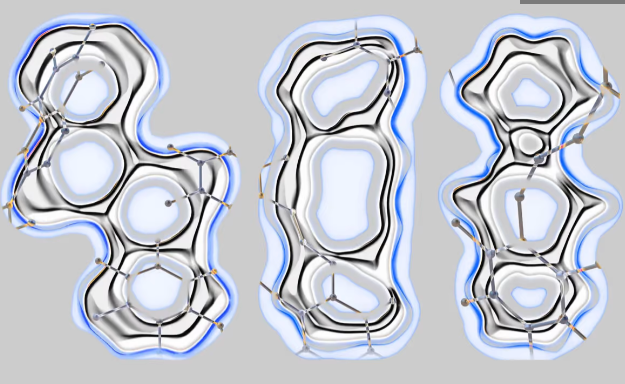By Nick
Lavars
July 21, 2022
Facebook
Twitter
Flipboard
LinkedIn

Scientists have developed a new technique to control atomic
bonds within a single molecule Photo credit:
IBM Research
VIEW 2 IMAGES
In what's being hailed as an important first for chemistry,
an international team of scientists has developed a new technology that can
selectively rearrange atomic bonds within a single molecule. The breakthrough
allows for an unprecedented level of control over chemical bonds within these
structures, and could open up some exciting possibilities in what's known as
molecular machinery.
Molecules are made up of clusters of atoms, and are the
product of the nature and arrangement of those atoms within. Where oxygen
molecules we breathe feature the same repeating type of atom, sugar molecules
are made of carbon, oxygen and hydrogen.
Scientists have been pursuing something called
"selective chemistry" for some time, with the objective of forming
exactly the type of chemical bonds between atoms that they want. Doing so could
lead to the creation of complex molecules and devices that can be designed for
specific tasks.
These so-called molecular machines were the focus of
the 2016
Nobel Prize in Chemistry, with Dutch scientist Ben Feringa earning
recognition for the creation of a molecular car powered by molecular motors
spinning at 12 million revolutions per second. We've also seen scientists
create molecular
pumps, tiny
gear wheels and molecular
submarines to target cancer cells, to list just a few examples.
Assembling these types of tiny machines is delicate work
that the authors of this new study liken to "putting Lego blocks in a
washing machine and hoping that the quintillions of molecules somehow end up
assembling themselves into the desired product." Their new work aims to
lean less on luck and more on purposeful control of the chemical bonds.
The research focuses on molecules known as structural
isomers, which have the same atomic composition but different arrangement of
bonds between those atoms. By using the tip of a scanning probe microscope to
apply different voltage pulses, the team showed that they could selectively
rearrange the chemical bonds. A molecule with a 10-membered carbon ring in the
middle was able to converted into a molecule with a four- and eight-member
ring, for example, or a molecule with two six-member rings in the center.
These reactions were also reversible, meaning the team
could break and form the different bonds at will, and essentially switch
between molecular structures in a controlled manner. This form of
"selective chemistry" is described as unprecedented by the team.
"It is a first," IBM Research scientist
and senior study author Leo Gross explained to New Atlas. "It is the first
time that with selectivity different bonds can be formed in a single molecule.
By the magnitude of the voltage pulse applied on the molecule in the center we
can choose if we want to create the molecule on the right or the one on the
left (see below)."

An atomic force microscopy image of molecules with
differing atomic arrangements Photo credit:
IBM Research
It is still early days for molecular machinery, but
technology that enables finer control over these types of structures could
significantly aid their development.
"Possible tasks to be performed by molecular machines
could comprise the transport of molecules or nanoparticles, the fabrication and
manipulation of nanostructures and facilitating chemical transformations,"
Gross told us. "Future applications could be related to single-electron molecular
devices, nanoelectromechanical systems, chemical synthesis and drug
delivery."
The research was published in Science.
Source: IBM Research